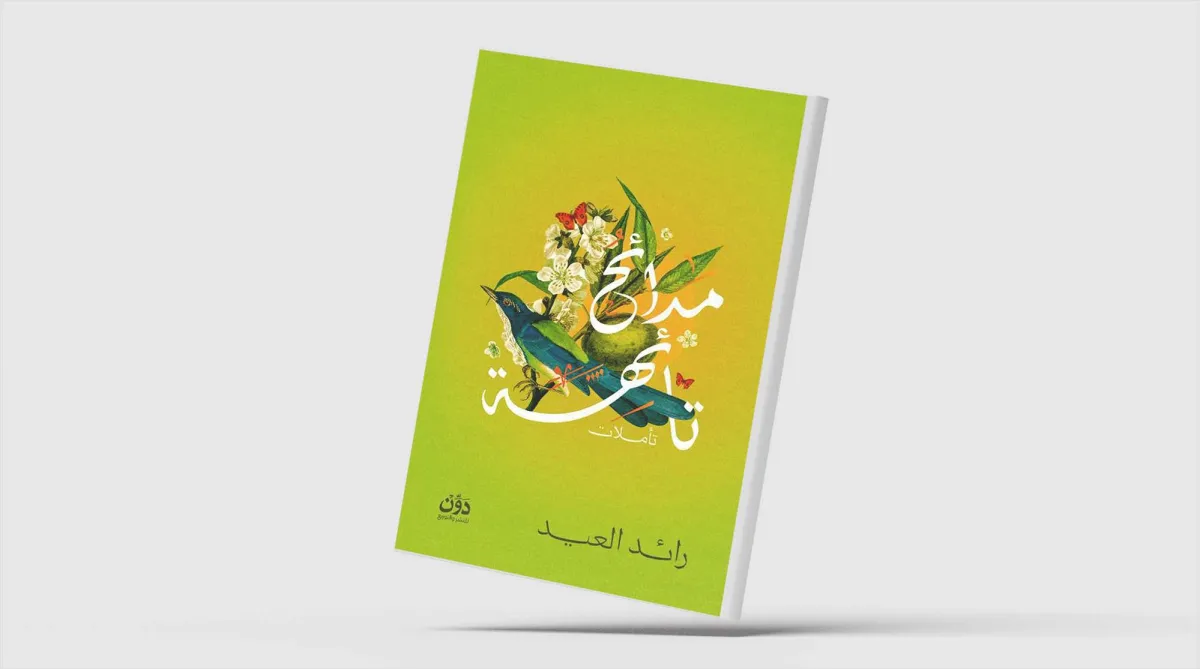Introduction to Lost Praise
"Man is a praise," says Raed Al-Eid in his new book "Lost Praise". This book takes us on a journey to research aspects that we have not paid attention to and to inspect the phenomena that we did not interest. The book is divided into chapters with titles such as "praise", "beginnings", "frame", "ceiling", "angry", "play", "from above", "almonds", and "edge". Each chapter opens the door to new questions, especially since the Saudi writer Raed al-Eid tries to turn it around, and sees them from different perspectives, starting with his own corner, his own memories, and resonated to the depths of his soul.
The Concept of Praise
The concept of praise is an enlarged narcotics and with a high response, even if it is quiet. No, it is right to say: "I praise, so I’m present." The book explores the idea of "praise" and the love of creatures to praise, since our Prophet Adam, "God gave his praise, and the devil and the deed of what he did to start history", into the time of the Lykat, in which a person lives from digital admiration. It is "the era of praise that does not praise".
Beginnings and Forgetfulness
The chapter "beginnings" can mean birth, childhood memories or introduction to a book, and the beginning of a new life can be in the way of Mahmoud Darwish, "they forget as if they are not", and this has become difficult. Because the modern era eliminates human law to forget its past because we live in an "era that is torn from the memory trade". Gunter Grass was forced after Nobel, the highest international literary award, when he was on the outskirts of death to confess his work with Hitler’s band. It was a little teenager. But that doesn’t forgive him, his prices were withdrawn by him and the title "The Conscience of the German Nation" was removed.
The Frame and the Ceiling
Each chapter opens Windows to the next chapter. We not only move to the "frame", not only to the frame that surrounds the painting, as this becomes a screen for dreams in the spirit of the writer as a child. The most important thing in the picture and its scene is the way it frames, which gives it a different meaning. The ceiling, as the writer represents it, is not only the upper part of the room that shadows our heads, but also the "companion of isolation" and "the memory of the imagination". We talk about it as if it attracts the limits of things "the ceiling of efforts", "The ceiling of freedom", "the ceiling of memory", and it can be a "place for delusions", as with Marquis or "space for art" as in the works of Slutawa or "the face of freedom" as with Mahmoud Darwish.
Possibility and Play
The book deals with the concept of "possibility" how the French anthropologist Mark Ogier is presented, and combines it with the highlights of modernity, which is accelerated, and the loss of fixed references. Playing is an experiment, entertainment that longs for the soul, destroys the rules and uses new norms, and it is the origin of innovation. Praise is easy and difficult to define. Perhaps it is something that we do for ourselves in our free will without entertaining another goal. And "we get his benefit, even if we don’t ask about it." We play to play.
Looking from Above
In order to look at things from the same expansion of the vision, they show aspects that we have not seen from the inside and an inspiration. Learn to see your Alawit that you are only a "point in the sea of infinity", and one person recognizes your favors in these worlds that he sees. The writer uses examples of air photography, philosophy, cinema and literature, as in other chapters. The reader about the question: What do we treat if we believe that we "see everything"? And how humility can show more than the transcendence?
Almonds and Identity
The book "Almonds" acts as a multi-indicative symbol, starting with the experience of the hybrid almond tree on the family farm, which the author combines with the concept of hybrid identity. He expresses his love for almonds as a ticking element in the food. Perhaps the "almond" fruit separation, which the writer prefers above everything, is the justification for the search for its advantages and prestige in nature, literature, painting and especially in the Japanese. It seems that the Palestinians are more than more than just almonds, flowers and trees. The poet who enjoys pages of this chapter and Who Saw that “the description of almond blossom is not sufficient for the encyclopedia of flowers and the dictionary is not helpful in that; Because rhetoric hurts the meaning and praises it, and the almond bubon remains a flower Without a description that is appropriate for it.

